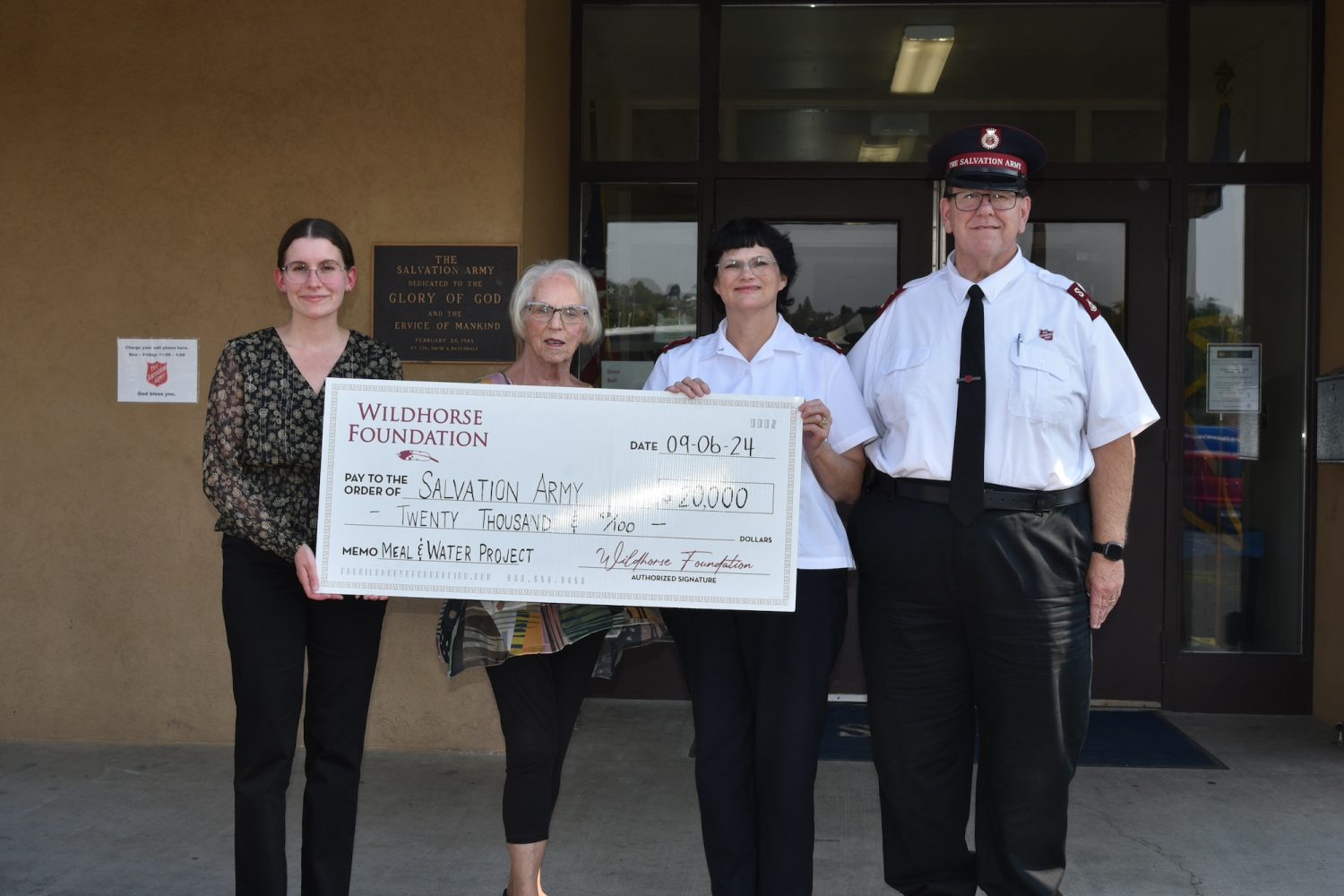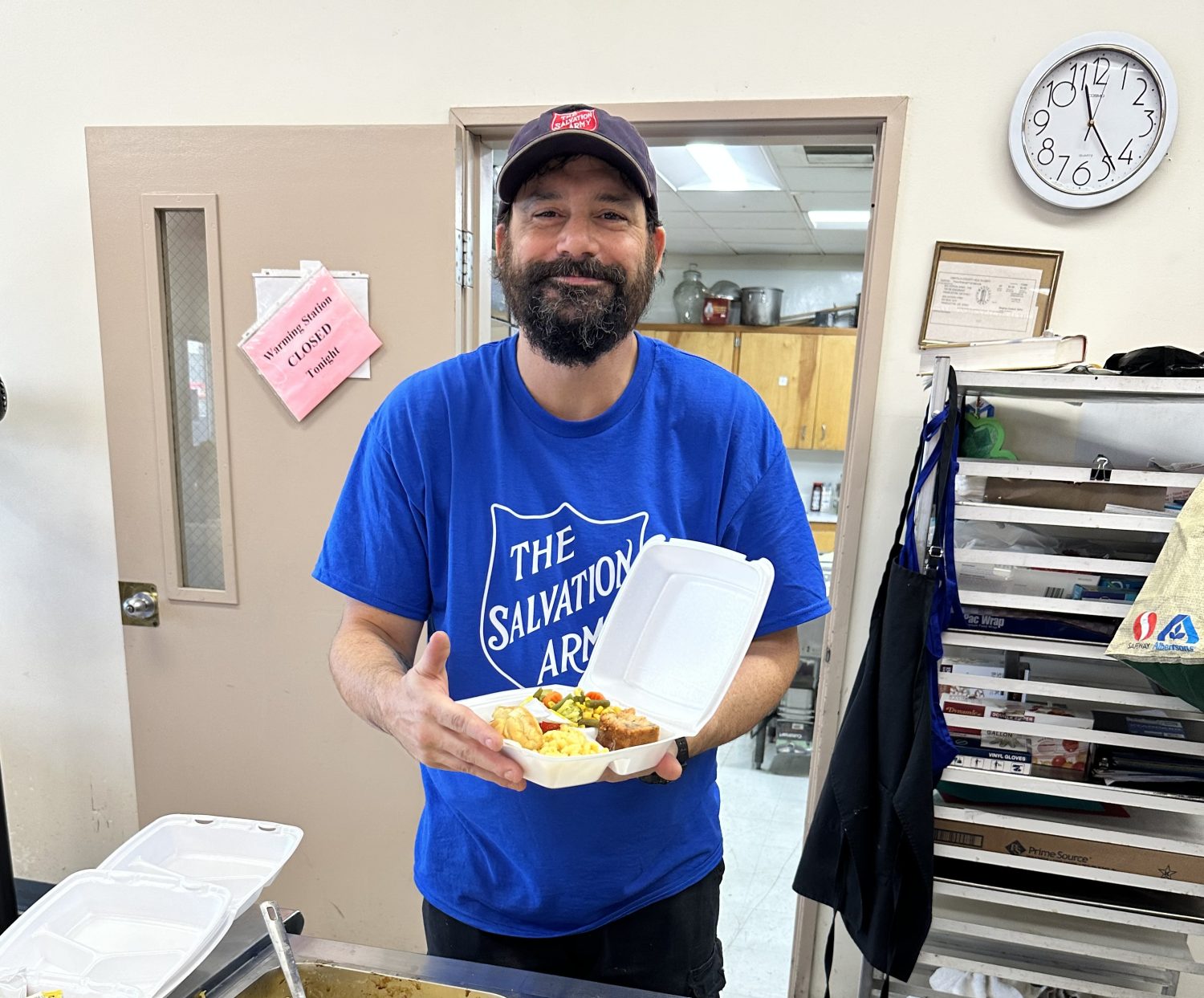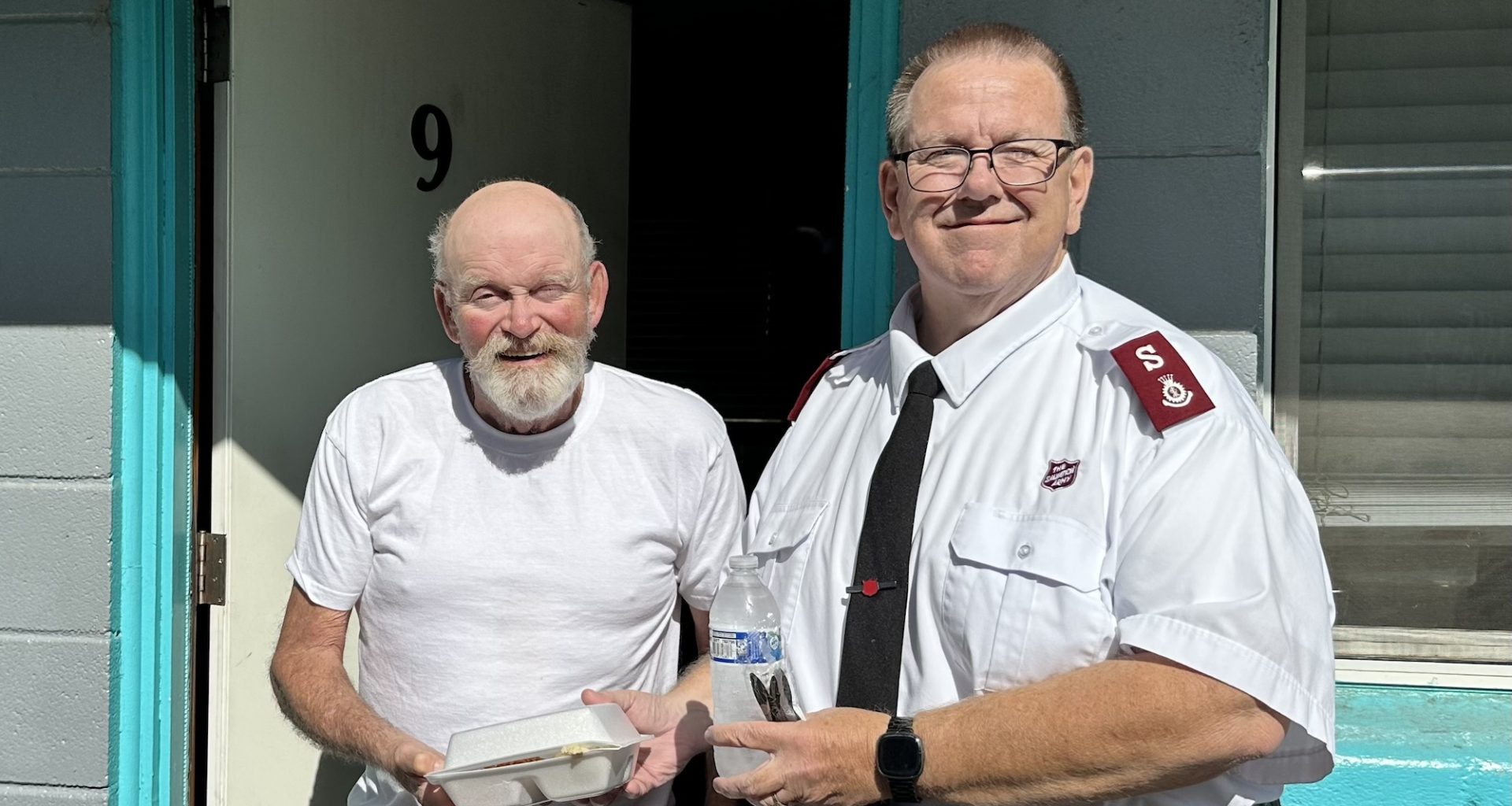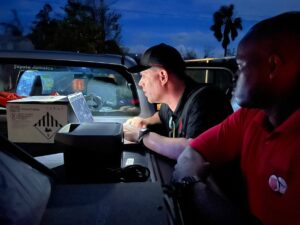The Wildhorse Foundation awards the Pendleton Corps a $20,000 grant for its feeding program in Oregon.
In Pendleton, Oregon, a town of just 16,000 people, The Salvation Army serves a daily meal to about 150 people. Corps Officer Major DeWayne Halstad said the effort costs about $125,000 annually, which the corps raises.
“It takes a lot to make this happen,” he said. “We’re applying for everything we can.”
Recently, the Wildhorse Foundation awarded the corps a $20,000 grant to support both the feeding program and the distribution of cold bottled water on hot days. The foundation handles charitable giving on behalf of the Wildhorse Resort & Casino and the Confederated Tribes of the Umatilla Indian Reservation.
“The Wildhorse Foundation is honored to be funding this program that offers a dependable resource to those facing food insecurity in Umatilla County,” said Ella Meyers, Wildhorse Foundation Administrator. “The Salvation Army Pendleton Corps is addressing immediate needs in Umatilla County and making a significant public impact.”

Halstad said the Wildhorse Foundation’s support means a great deal to the program.
“The Wildhorse Foundation has seen fit to partner with The Salvation Army to provide services to people in need in our community for many years now and we look forward to working together for many years to come,” he said.
As the county seat for Umatilla County, Pendleton is in northeast Oregon, about 40 miles south of Walla Walla, Washington. It’s known for the annual Pendleton Round-Up, one of the world’s 10 largest rodeos, and for Pendleton Woolen Mills, which originally made blankets to trade with Native Americans.
When Halstad first got to Pendleton in 2019, the corps was serving 40 meals each day. Today it serves almost four times that amount.
Reports suggest food insecurity worsened in Oregon after the pandemic. The USDA reported Oregon’s food insecurity rose to 12 percent from 2021–2023, increasing about three percent from 2018–2020. The rate of “very low food security” also rose, indicating a situation where people are skipping meals because they can’t afford to eat.
Halstad said he delivers to about 50 people, Monday through Friday—individuals who face challenges traveling to the corps to get food, including people experiencing homelessness, older adults and those with health conditions.
One of Halstad’s regular deliveries is to Rick Morris, who said he looks forward to seeing “the Major.”

“It means not going hungry,” Morris said. “It’s more than just giving out meals; it’s helping people in need. It means so much to me and my neighbors. And it’s pretty yummy—the meals are good and nutritious.”
Meanwhile, the corps serves meals seven days a week to about 100 people daily. In addition to grant funds, proceeds from the corps’ thrift store also support the feeding program. The corps purchases food at the local Chef’Store, a wholesale grocer. Kentucky Fried Chicken and Papa Murphy’s pizza donate a meal each week, as does St. Anthony’s Hospital. Local farmers also donate food. And volunteers help distribute the meals at the corps.
Preparing those meals is Ty Van Meter, a professional chef with 20 years of experience, who had originally applied for the thrift store manager position—he’d been looking to take a break from the restaurant business.
When Halstad saw his application, he thought Van Meter had applied for the wrong job. He convinced Van Meter to take the cook position.
And Van Meter has no regrets.
“I love working here because it serves a purpose,” he said. “We help meet a need by feeding a lot of people for whom this might be their only meal they get in the day. Working for so many years in the restaurant industry, you see where it is all about making a profit. [Here] we get to help people by filling their stomachs with good-tasting food, and the reward in doing that is that it puts a smile on someone’s face. What better job could you ask for?”
Do Good:
- It’s because of people like you The Salvation Army can serve more than 24 million Americans in need each year. Your gift helps fight for good all year in your community. It’s an effort to build well-being for all of us, so together we rise—and that good starts with you. Give to spread hope with a donation of funds, goods or time today.












